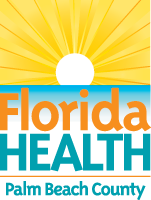It's a New Day in Public Health.
The Florida Department of Health works to protect, promote, and improve the health of all people in Florida through integrated state, county, and community efforts.
Raccoon Tests Positive for Rabies
December 27, 2017
Palm Beach County, FL- Animal Care and Control has expanded its search area for possible rabid animals to an area south of Lake Worth Road and west of Jog Road following information that the rabid raccoon confirmed yesterday may have been handled by a veterinarian in that area.
Florida Department of Health Laboratory confirmed Tuesday that a raccoon that fought with a dog whose owner lived near Gun Club and Haverhill Roads had tested positive for rabies.
Animal Care & Control is expanding its investigation after discovering that the raccoon was initially captured by a Lake Worth Veterinarian and prior to being picked up by an Animal Control Officer exposed the owners dog in its clinic. Department of Health in Palm Beach County is now furthering its investigation into possible human exposure among veterinarian hospital workers. The dog will have to be quarantined a minimum of 45 days at its home and possibly longer pending the evaluation.
According to the Florida Department of Health in Palm Beach County this is the fifth confirmed rabid animal this year in the county. Residents in the area of Gun Club and Haverhill roads and south of Lake Worth and west of Jog Roads should take the necessary precautions to avoid contact with any wild animals.
Rabies is a disease of the nervous system and is fatal to warm blooded animals and humans. The only treatment for human exposure to rabies is rabies-specific immune globulin and rabies immunization. Appropriate treatment started soon after the exposure will protect an exposed person from the disease.
• Keep your pets under direct supervision so they do not come in contact with wild animals. If your pet is bitten by a wild animal, seek veterinary assistance for the animal immediately and contact Animal Care & Control at 561-233-1200.
• Call your local animal control agency to remove any stray animals from your neighborhood. • Spay or neuter your pets to help reduce the number of unwanted pets that may not be properly cared for or regularly vaccinated.
• Do not handle, feed, or unintentionally attract wild animals with open garbage cans or litter. • Never adopt wild animals or bring them into your home.
• Teach children never to handle unfamiliar animals, wild or domestic, even if they appear friendly.
• Prevent bats from entering living quarters or occupied spaces in homes, churches, schools, and other similar areas where they might come in contact with people and pets.
For further information on rabies, go to the Florida Department of Health website: https://www.floridahealth.gov/diseases-and-conditions/rabies/index.html 500. Animals exhibiting signs of havior should be reported to Animal Control at 561-233-1200.





Connect with DOH